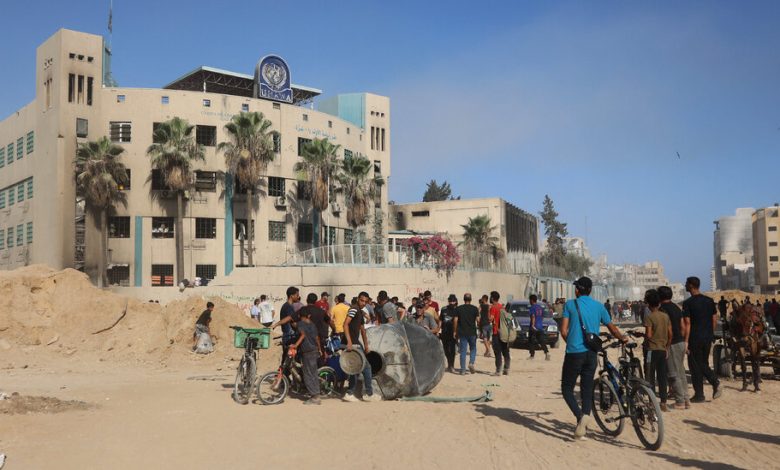Britain says it’s restoring funding to the U.N. agency that aids Palestinians.

Britain said on Friday that it would restore funding to the United Nations agency for Palestinians, a major vote of confidence in the embattled aid group by the country’s new Labour government in its first significant move on the Israel-Gaza conflict.
The British foreign secretary, David Lammy, told Parliament that the agency, UNRWA, had taken steps to make sure that it meets “the highest standards of neutrality,” and he confirmed that Britain would transfer 21 million pounds, or $27 million, to the agency, which processes much of the humanitarian aid flowing into Gaza.
The previous Conservative government had suspended funding after Israel accused a dozen employees of UNRWA of being involved in the Hamas-led attacks that killed about 1,200 Israeli civilians last October. Israel claimed that many other workers at the agency were members of terrorist groups, but has not produced evidence to support those broader charges.
“I was appalled by the allegations that UNRWA staff were involved in the Oct. 7 attacks, but the U.N. took these allegations seriously,” said Mr. Lammy, who was appointed foreign secretary on July 5, a day after the Labour Party’s landslide election victory over the Conservatives.
After an independent review, Mr. Lammy said that Britain had been “reassured” that UNRWA was “strengthening its procedures, including on vetting.”
Britain had joined the United States and a dozen other countries in suspending the funding. But the humanitarian situation in Gaza has become ever more dire, and last week 118 countries publicly declared their support for the agency at the United Nations, with the secretary general, Antonio Guterres, declaring, “There is no alternative to UNRWA.”
Mr. Lammy, who recently returned from a visit to Israel, repeated his demand for an immediate cease-fire and criticized Israel over the shortage of aid entering Gaza. “Israel promised a flood of aid back in April but imposes impossible and unacceptable restrictions,” he said. But his statement captured the political pressures that his government is likely to face regarding the conflict.
He did not signal that Britain would drop the previous government’s objection to arrest warrants sought by the International Criminal Court for Prime Minister Benjamin Netanyahu of Israel and for the Israeli defense minister, Yoav Gallant. Mr. Lammy said his government would not act on the matter before the results of the court’s legal review on whether Israel was complying with international human rights law.
That reluctance has drawn criticism from many members of the Labour Party, who want tougher action against Israel. Some Labour politicians were damaged in the election by the party’s cautious approach to the conflict. Jonathan Ashworth, a Labour figure who would probably have been named to a cabinet post, unexpectedly lost his seat to a pro-Palestinian activist.